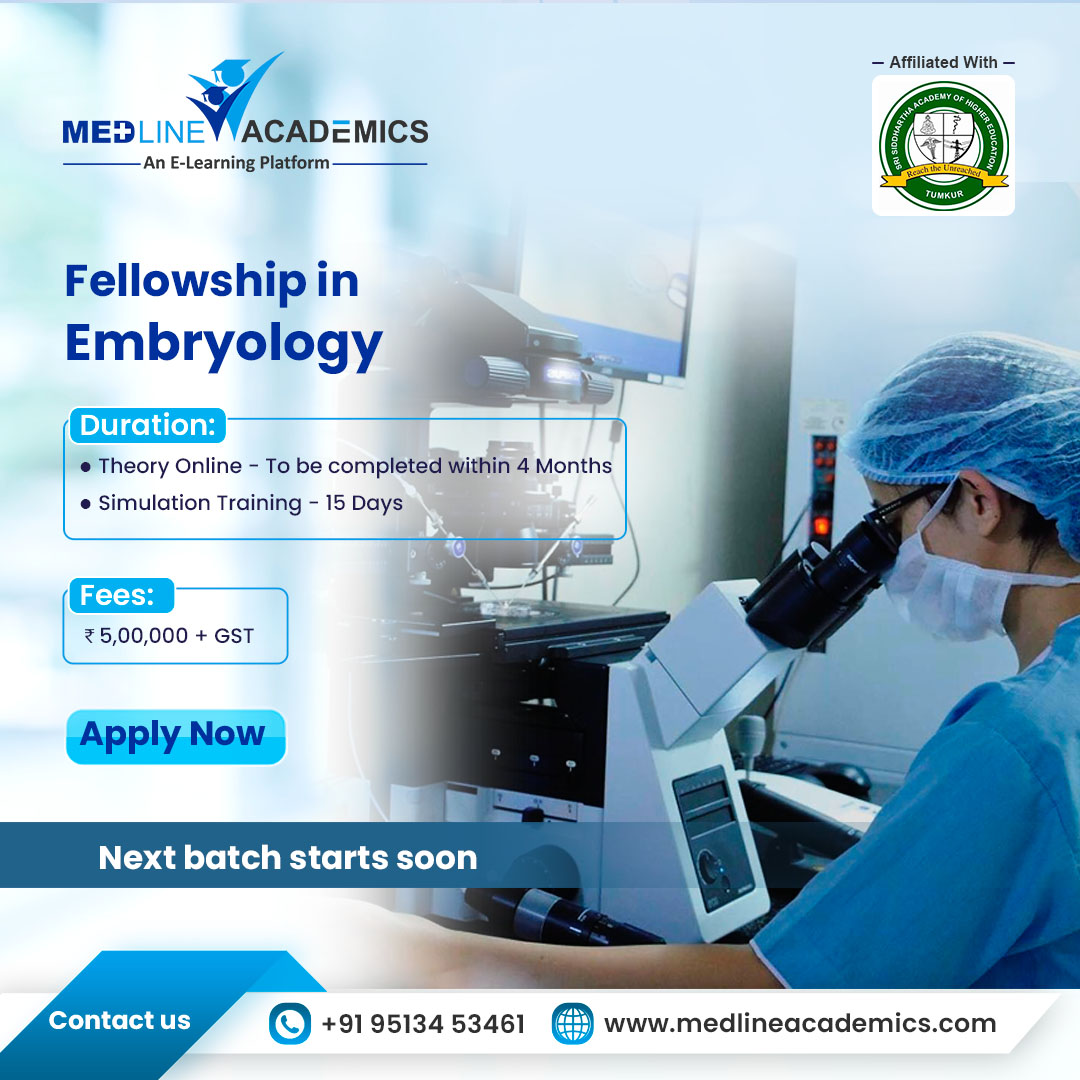In the complicated landscape of reproductive medicine, where the delicate balance between science and human emotion intertwines, the role of education in clinical embryology cannot be overstated. This case study delves into the journey of Sarah and John, a couple grappling with unexplained infertility, and highlights how Fellowship in Embryology and the understanding in collaboration with their healthcare providers paved the path towards achieving their dream of parenthood.
In today's era of rapid advancements in assisted reproductive technologies (ART), including in vitro fertilization (IVF) and preimplantation genetic testing, a foundational understanding of embryology is indispensable for both clinicians and patients alike. From comprehending the intricate processes of gamete formation and fertilization to navigating the complexities of embryo development and genetic screening, education forms the cornerstone upon which informed decisions and personalized treatment plans are built.
This case study on Sarah & John underscores the pivotal role of education in empowering individuals to make informed choices regarding their fertility care. It illuminates how a deepened understanding of embryological concepts, coupled with effective communication between patients and healthcare providers, can lead to optimized treatment outcomes and enhanced patient satisfaction.
Case Study: Unexplained Infertility and the Role of Preimplantation Genetic Testing
Patient Background
Sarah and John, a couple in their early thirties, have been trying to conceive for two years without success. They have undergone basic fertility testing, including semen analysis for John and hormonal evaluation and imaging studies for Sarah, which all appear normal. Their diagnosis is unexplained infertility.
Clinical Presentation
Sarah and John present to a fertility specialist seeking further evaluation and treatment options. They are emotionally distressed by their inability to conceive and are eager to explore all available options to achieve pregnancy.
Clinical Evaluation
After discussing various treatment options, including intrauterine insemination (IUI) and in vitro fertilization (IVF), Sarah and John opt for IVF due to its higher success rates. However, considering their unexplained infertility diagnosis, the couple is concerned about the possibility of recurrent implantation failure or miscarriage.
Intervention
The fertility specialist recommends preimplantation genetic testing for aneuploidy (PGT-A) to improve the chances of successful embryo implantation and reduce the risk of miscarriage. PGT-A, formerly known as preimplantation genetic screening (PGS), involves the biopsy of one or more cells from embryos produced through IVF to assess their chromosomal composition before transfer into the uterus.
Outcome
Sarah and John agree to undergo IVF with PGT-A. During the IVF cycle, several embryos are successfully generated, and biopsies are performed on day 5 of embryo development. The genetic analysis reveals that only two out of the six embryos are euploid, meaning they have the correct number of chromosomes. These euploid embryos are selected for transfer into Sarah's uterus.
Follow-Up
Two weeks after embryo transfer, Sarah undergoes a blood test to check for pregnancy. The test confirms that she is pregnant. Subsequent ultrasound examinations reveal a singleton intrauterine pregnancy with a normal fetal heartbeat. Sarah continues to receive prenatal care, and she delivers a healthy baby boy at full term.
Discussion
This case illustrates the potential utility of PGT-A in couples with unexplained infertility undergoing IVF. By identifying euploid embryos for transfer, PGT-A can improve the likelihood of successful implantation, reduce the risk of miscarriage, and increase the chance of achieving a healthy pregnancy. While PGT-A is not a guarantee of pregnancy success, it can provide valuable information to guide treatment decisions and optimize outcomes for couples struggling with infertility.
In the era of advanced reproductive technologies, such as IVF and PGT-A, couples facing challenges with fertility have access to innovative approaches that can improve their chances of conceiving a healthy baby. Personalized treatment strategies, informed by comprehensive evaluation and genetic testing, can help fulfil the dreams of parenthood for couples like Sarah and John. And, if you want to know how to help million couples like them, this article is for you…
Medline Academics is one of top institutions offering the best clinical embryology courses in Karnataka. The Fellowship in Embryology offered by the institution stands as one of the most sought-after courses in the field, offering a unique blend of flexibility and hands-on training tailored to meet the needs of busy practitioners. Designed to accommodate diverse schedules, the program features theory modules accessible anytime and anywhere, providing participants with the convenience of remote learning. The curriculum is meticulously crafted to deliver comprehensive theoretical knowledge through easily accessible online modules. This format enables practitioners to delve into the intricacies of embryology at their own pace, without constraints of time or location. Learners benefit from the flexibility to engage with course materials while managing their professional commitments. However, recognizing the indispensable value of practical experience in embryology, the program incorporates hands-on training that necessitates physical presence at the Medline Office in Bangalore.
The Fellowship in Embryology offers a balanced approach to learning, combining the convenience of online education with the invaluable hands-on experience. By bridging the gap between theory and practice, this innovative program equips practitioners with the knowledge and skills necessary to excel in the dynamic field of embryology.
To know more details like the embryology course fees, detailed curriculum, Visit our website www.medlineacademics.com





Comments